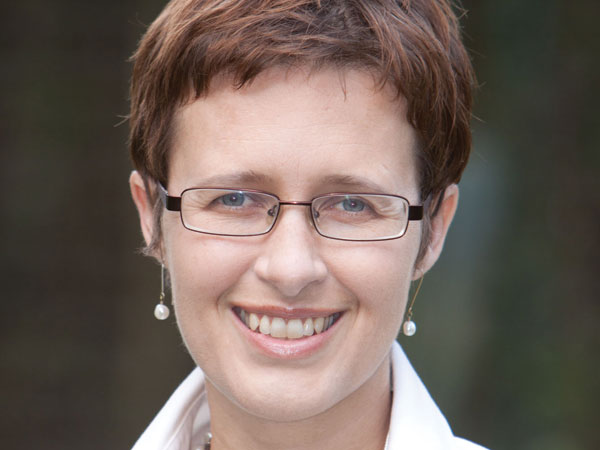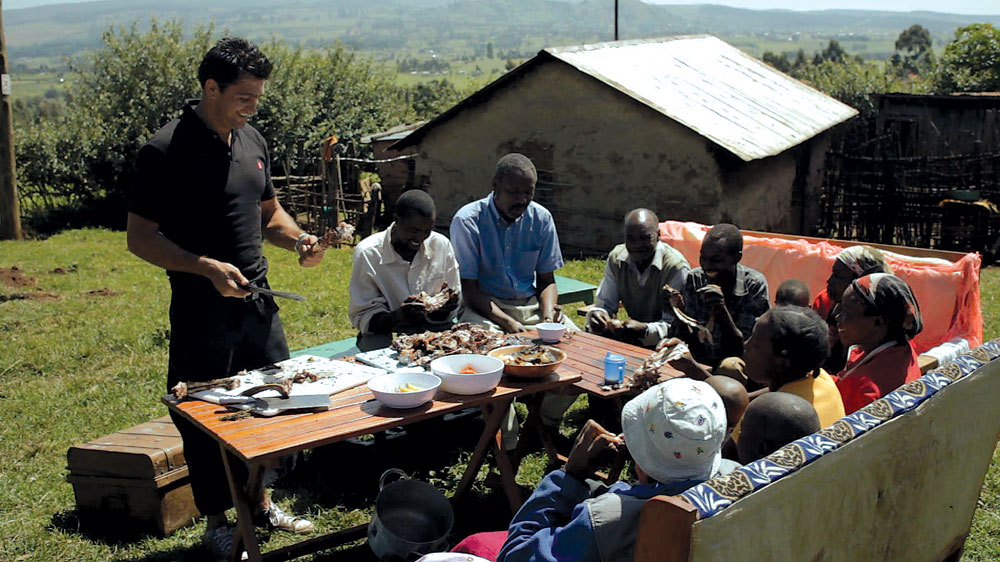Interview: Hannelie Bekker, Wananchi Programming
Wananchi’s Zuku TV, one of the emerging competitors in the East African pay TV business, is looking to expand to new territories this year. Wananchi Programming MD Hannelie Bekker talked to Stuart Thomson about the company’s plans.
Zuku TV, owned by Kenya’s Wananchi Group, is one of a brace of recent challengers to the dominance of MultiChoice’s DStv in the pay TV market in sub-Saharan Africa. Originally launched as Zuku Triple Play on cable in Nairobi, the service expanded its reach to target a wider potential audience via DTH launches, initially in Kenya. Launches in Uganda and Tanzania followed in late 2011 and the company is now planning further DTH services in Ethiopia, Rwanda, Malawi and Zambia and is adding to its stable of home-produced channels.
According to Hannelie Bekker, managing director of Wananchi Programming, Zuku will launch in “two or three” of the latter markets this year, with the remainder likely following in 2014. She says that Wananchi will take a decision at the end of this quarter about which territory to target first.
Bekker says that the countries Wananchi is targeting with its service have had limited access to alternative sources of TV entertainment until now, meaning that it can appeal to a broad segment of the population with a relatively straightforward offering of channels with pan-regional appeal. “We are fortunate in that the markets we are targeting are so underserved that you can find a great deal of commonality,” she says. “We are rolling out to consumers who have only had access to free-to-air broadcasts.”
Key to success, she says, is to form local partnerships with content providers. The broadcaster has sourced local programming from each of the countries in which it is present to feed into its channels, including flagship service Zuku Afrika. “We make sure we have programming from each country. We form relationships with content owners there, so as our footprint grows the content becomes richer,” says Bekker. The platform airs content primarily in English, with some content subtitled. Bekker says that the broadcaster will look at investing in multiple language tracks and re-versioning content as its footprint expands.
Zuku is also about to launch of a new non-English language entertainment channel – a first for the platform. “It’s a very specific case where we thought there was potential. We will fully subtitle it in English,” says Bekker.
For the rest, Bekker says that there are so many language groups across the region in which Zuku is available that it would make little sense to attempt to cater for all of them. However, the platform is open to providing a platform for all sorts of community-based channels and already carries a channel specifically aimed at Kenya’s Kalenjin minority. The Zuku platform has grown as the service has expanded into new territories. In addition to the 80 or so channels that the broadcaster pays a carriage fee for, Zuku carries seven (soon to be eight) of its own services, including Zuku Afrika, and a broad and growing range of free-to-air services. This includes some locally-produced channels – such as Dar-es-Salaam-based Clouds TV – that have appeal across national boundaries where rights are available.
Bekker points out that a recent study conducted by Wananchi showed that one clear incentive for people to subscribe to the platform was to improve their reception of free-to-air channels. “We recently did a very substantial study and asked why people valued pay TV. Picture clarity was one of the top three reasons. We underestimated how many people are effected by [poor reception],” she says. The launch across the region of digital-terrestrial services and impending digital switchover is, she believes, likely to benefit pay TV services as it forces people to address the question of how best to receive TV signals.
Bekker says that the research also showed that Zuku’s own channels were highly valued by the subscriber base. “The very validating thing about the research is that the Zuku channels are highly viewed. We were hoping that was the case. From the research we think it’s really working. They are only two years old and there has been a constant process of refinement and adjustment,” she says.
Wananchi intends to continue to invest in new programming, commissioning original shows such as Tales from the Bush Larder in 2012 for the first time. “Within the Zuku channels there is intensive work being done on local content. We had about three or four local series on Zuku Afrika and we are also doing one on Zuku Life,” says Bekker.
Despite the cross-territory appeal of its service and the lack of a perceived need to target a specific audience segment in markets that have a strong appetite for new content, Zuku does offer a range of tiered services as well as packages targeted at East Africa’s Hindi population. In Nairobi, where it operates its own cable network and provides triple-play services, it offers basic and premium tiers, with the former costing KES2,999 a month (e25), and the latter coming with a choice of 10Mbps or 20Mbps internet access for KES3,999 and KES9,999 respecitively. On satellite in Kenya it offers Zuku Classic with 35 or so English-language channels plus local channels for KES999 a month, and Zuku Premium with over 60 English-language channels for KES1,999. It also offers Asia Classic, for KES1,499 and Asia Premium, for KES2,999.
Satellite distribution offers a more immediate ability to distribute content over a wide region and has of course been the engine of Zuku’s growth since its expansion beyond Nairobi, but Bekker says Wananchi may look to launch cable in other major cites in the region such as Mombasa and Dar-es-Salaam. “It’s a big investment but we are the only true triple-play provider on the continent and that’s important,” she says.
Value-sensitive
While the region’s inhabitants have, relative to more advanced markets, been starved of choice until recently when it comes to provision of TV services, this is changing. And a lack of disposable income does not stop consumers from being increasingly demanding when it comes to quality of service. “One thing that is blindingly clear is that the market is very price sensitive – but it’s also very value sensitive,” says Bekker. “If you sell on value you had better deliver. People want what they pay for. They are quick to call us on anything perceived as a problem.” Zuku had a demonstration of this last year, when traffic arriving via two undersea cables was disrupted for two days. “People wanted refunds. They make careful purchase decisions and monitor what they are getting. It has been an important lesson, and it validates our approach of delivering good, affordable packages,” she says. Having suffered from a reputation for variable customer service, Zuku has made greater effort to engage with its customer base through the use of social media.
“Customer service has been problematic for us – for some time we were using both an old cable network and a new one and we had some challenges around that,” says Bekker. “We started doing some customer service around social media. There is a shift happening, saying go to where your customers are. The region is not known for fantastic service so the bar is low but people are tired of poor customers service.”
The challenge of delivering a compelling service will only become harder as competition intensifies. Zuku is one of a growing range of players targeting the burgeoning pay TV audience in the region, including the Chinese-backed Star Times service, available on digital-terrestrial platforms, and MultiChoice’s DStv, the South Africa-based pay TV incumbent for in sub-Saharan Africa. The latter has expanded the range of its offerings to target a lower-cost audience segment with its GOtv service, available on digital-terrestrial platforms in a number of territories. “There are smaller operators here and there but those are the main contenders at the moment. The situation is also complicated by digital migration, which has now started in some cities,” says Bekker.
Other sources of competition include the illegal consumption of content through pirating of signals. “Piracy is a problem and it’s on our radar for this year to join hands with other operators and join battle. It’s not something that killing our business but it’s definitely a problem,” says Bekker. She adds that the best deterrent is to make a concentrated effort to tackle the culprits at source, with highly-publicised arrests in the presence of journalists.
With the pay TV ecosystem becoming more sophisticated, Wananchi will have to rely on its local expertise and content relationships to offer a distinctive proposition. The good news for East African consumers is that the range of choices available to them seems set to continue to grow.





